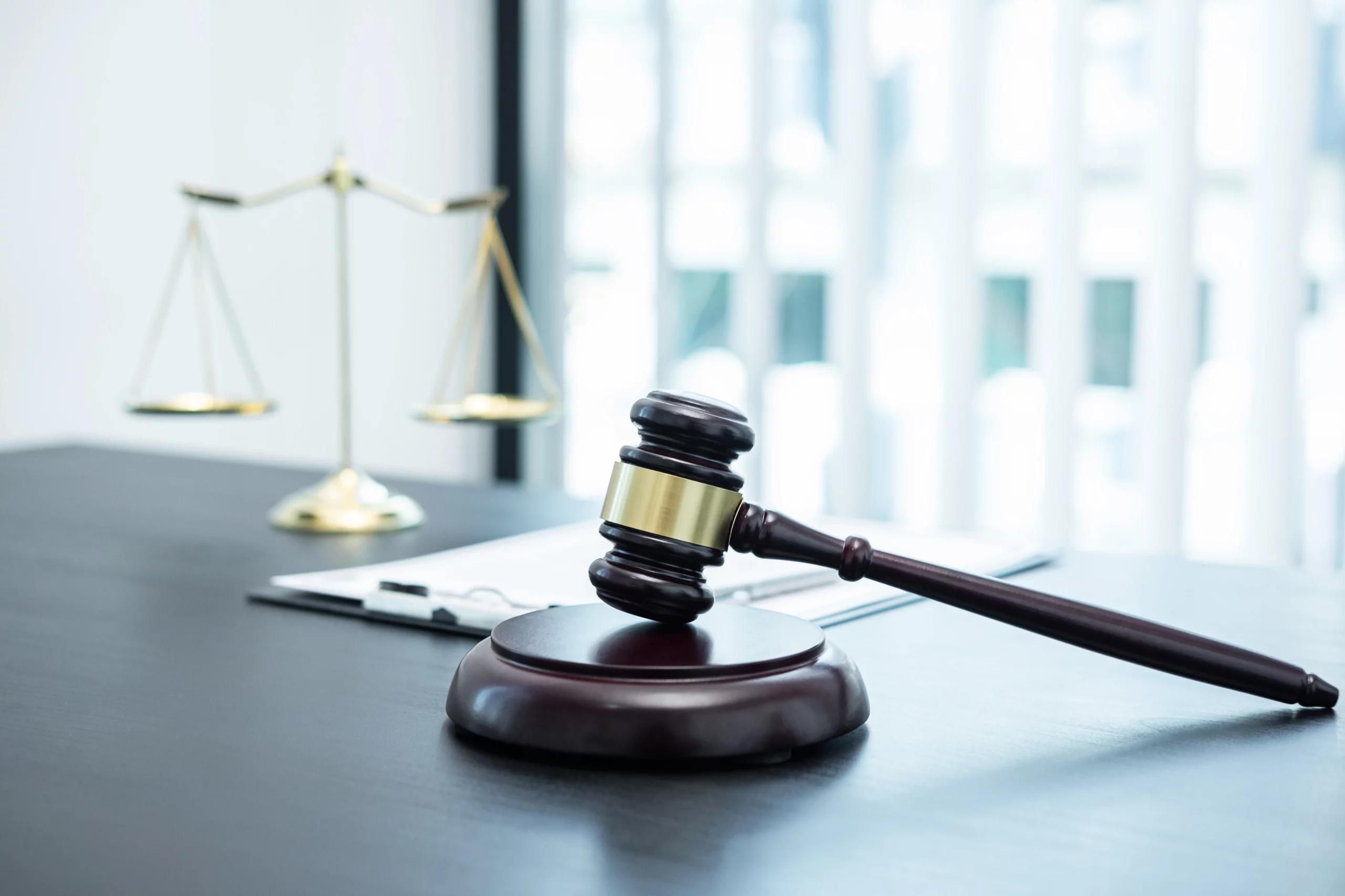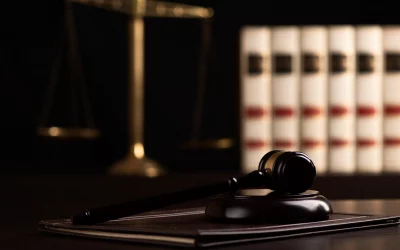Frequently Asked Questions on Mediation in Car Accident Cases
1. What exactly is Mediation?
Mediation is a growingly popular alternative dispute (ADR) that the California courts have sanctioned. Mediation is a procedure in which parties to a claim or lawsuit meet to resolve their disagreements with the assistance of a mediator.
The Mediation and the parties collaborate to resolve the dispute via settlement or other means. Mediations are similar for those who are more acquainted with court-ordered settlement sessions; however, they often continue longer and include more participants.
Everything spoken during Mediation is private; it can be used against a party in subsequent litigation.
2. Is Mediation a viable option in my case?
Usually, Mediation typically aids in the outcome of a case, and most parties involved in a lawsuit or prospective litigation are better suited to resolve their dispute outside of the court. The claimant has some say in the decision-making process during Mediation.
Finally, Plaintiff has the option of adopting or declining the amount of money provided by the respondent or insurance company. At a trial or arbitrator, the lot of cash awarded to the client is determined by a stranger(s) and is nearly totally outside the Plaintiff’s control.
On the other hand, some plaintiffs want a trial, and certain cases are not “ripe” for arbitration at a specific stage of the lawsuit, especially early on. When and if to mediate must be determined on an individual basis.
3. What criteria are used to choose mediators?
Generally, the attorneys in a dispute convene and seek to agree on a mediator. Typically, this would be someone who is very educated about the case’s subject area, adept in Mediation, and seen as somewhat objective. Mediators may be retired judges, active or retired lawyers, or a combination of the two.
4. When may a matter be referred to as Mediation?
Anytime. A case may be mediated from the moment all parties become aware of the possible claim until the conclusion of the trial or even after the conclusion of the trial.
5. What is the cost of Mediation, and who pays for it?
The price of Mediation varies significantly according to the charging procedures of the Mediator and the duration of the Mediation. Mediations may cost anything from several hundred bucks to $10,000 or more, depending on the length of the Mediation.
Typically, the parties divide the expense of the Mediation (with the Plaintiff’s attorney covering the costs); however, in rare instances, the defendant or insurance company is ready to cover the full cost of the Mediation.
6. Where does meditation take place?
Mediation has no defined time or place. The majority of mediations occur in a suite of offices hired by big mediation companies. Typically, one huge conference room and numerous separate “caucuses” rooms (meetings between each party and their attorney).
- Is the Mediator provided with written material before the Mediation?
Generally speaking, though not usually. Each side is often required to write a mediation brief outlining the matter. The brief maybe a few pages long or hundreds of pages long, depending on the intricacy of the case.
Additionally, critical papers and evidence will be included in the mediation brief. However, exchanging briefs is not required, and some lawyers may produce a brief but send it secretly to the Mediator rather than to the opposing counsel.
Generally, plaintiff lawyers will wish to show their brief to the insurance adjuster, defendant, and defense counsel.
8. What occurs during Mediation?
Mediation may take several forms, depending on the Mediator’s style, the lawyers involved, and the nature of the case. The majority of mediations begin with a “joint session” where all parties, lawyers, and insurance adjusters gather with the Mediator in a single conference room.
The Mediator outlines the procedure that will be followed, and then each party gets the chance to submit their case to the other party and the Mediator. The parties may communicate with one another if they so want. In severe circumstances of antagonism between parties, such as those involving sexual assault and exploitation, the joint session may be waived to protect the Plaintiff.
If a joint session is held, after it concludes, the parties and their lawyers go to separate rooms, and the Mediator shuffles between the rooms, addressing critical points in the case and relaying settlement demands and offers.
9. What is the duration of Mediation?
Generally, mediations are planned for half a day, a full day, or several days; nevertheless, they might conclude early or extend into the wee hours. Mediations that started at 9:00 a.m. have been known to go till the wee hours of the morning.
Other mediations may conclude fast if both parties reach an agreement rapidly or acknowledge that their expectations for the Mediation are too dissimilar for the Mediation to be effective. Occasionally, more mediation days may need to be planned before the issue can be resolved.
10. What occurs after Mediation?
If the issue is resolved via Mediation, a formal settlement agreement is often drafted and signed by all parties, at which point it becomes an enforceable contract. The agreement will include both financial and non-financial aspects.
For non-resolution, the parties may either continue the litigation and arrange another mediation later, or they may stop the action and arrange another mediation.
The majority of legal concerns demand complicated responses. The answers offered here may not be exhaustive or completely correct, but they will assist customers with brief responses. To get more extensive answers to these issues, a consumer should refer to other articles in this website area, do more legal research, or speak with an attorney.
How Mediation for Personal Injury Works (Step-by-Step) Mediation: What Is It?
Mediation is a procedure in which both parties to a dispute agree to employ a neutral third party to attempt to settle the claim without resorting to litigation. It is critical to understand the process of personal injury mediation. Although Mediation may be voluntary between two parties, it is often required before a court will allow your case to go to trial.
If your case goes to Mediation, your lawyer and the insurance defence lawyer will agree on the Mediator. A Mediator is a third person who acts as a neutral party. Both sides agree on a day, time, and venue for the meeting and a mediator.
Is Mediation Always Necessary in Personal Injury Cases?
Sometimes the court requires Mediation, while other times, both parties consent to it willingly. Mediation may be an excellent technique for resolving disputes without incurring the danger, money, and energy associated with prosecuting or defending a case in court. However, refrain from getting your hopes up. Insurance firms often employ Mediation to dissuade injured consumers from pursuing full compensation for their losses.
How Personal Injury Mediation Works
As an experienced personal injury trial lawyer, I spend at least one hour with each client before Mediation, explaining how personal injury mediation works. We discuss the precise facts and circumstances surrounding their case. If the matter is complicated, our meeting before Mediation may last several hours.
I urge my client to view my video, shown above, which details what to anticipate during their Mediation. After adequately preparing my client, we will go to the Mediation together.
To begin, the Mediator introduces everyone who will be participating in the Personal Injury Mediation:
When the Mediator arrives, they identify themselves to all of the parties. Additionally, they guarantee that everyone is aware of one another and their respective duties in the case. Typically, the Mediator will be joined by the defense attorney and a claims adjuster. Frequently, the at-fault party, or defendant, will not attend the Mediation. However, they may be obliged to attend or may want to attend Mediation.
When Parties Refuse to Identify Themselves During Mediation, This Usually Indicates the Presence of Umbrella or Excess Coverage:
I’ve been to a couple of mediations where participants were unwilling to identify themselves or the parties they represented. This is often the case when the defendant has an umbrella insurance policy in addition to his or her basic or first level of insurance. They wish to attend Mediation if they have an excess or umbrella insurance coverage for many reasons:
First, they want to hear directly from the parties involved in the case. They want to meet and speak with the injured party and their attorney. This assists them in estimating what they believe the jury will do. The umbrella insurance company wants to pressure the policyholder of the cheaper insurance policy to pay their policy limits and get a complete release.
Why Would an Underwriter of an Umbrella or Excess Policy Want to Settle at Mediation?
If the umbrella insurance company can coerce the first layer of insurance into agreeing to a release, the umbrella insurance company is not obligated to pay. On the other hand, the umbrella insurance company does not want Plaintiff to be aware of the additional insurance coverage. Because if Plaintiff discovers the existence of excess coverage, they may refuse to accept the policy limitations and may claim a portion of the umbrella funds as well.
Everyone Signs Confidentiality Agreements Before Mediation Beginning:
After everyone has been introduced, the Mediator circulates a paper in which everyone agrees to keep the mediation secret. This implies that each side may agree to or acknowledge things they would not normally accept during a trial. Because Mediation is private, both parties may unwind. This is how Mediation for personal injury works.
What Is the Importance of Confidentiality in Personal Injury Mediation?
Nobody is concerned about saying anything the opposing side may use against them in court. For instance, the defense may claim that they are not challenging responsibility at Mediation (which entails conceding complete culpability for Mediation only) but may challenge fault during the trial. Alternatively, the defense may propose a settlement figure. Without settling the lawsuit, neither side may advise the court or jury of the other’s willingness to settle.
Following that, Plaintiff makes an Opening Statement on the worth of their Injury Case:
Following the signature of the confidentiality agreement by all parties, Plaintiff’s lawyer delivers their opening statement. Occasionally, opening speeches exceed two minutes in length. Occasionally, they are just a few hours long.
It relies on the evidence, documents, films, pictures, or charts presented by the plaintiff’s counsel. The opening statement assists the Mediator, insurance adjusters, and attorneys comprehend what the jury may observe if the case does not settle.
The defense then makes its opening statement explaining why they should pay less:
Following the Plaintiff’s attorney’s opening statement, the Mediator will enable the defense counsel to deliver their case. Typically, the defense attorney confronts my clients personally and says something along the lines of, “This is my one chance to communicate with you.” I have to do and will say things you will not agree with; nonetheless, you must listen to what I am about to say because if we do not settle this matter today, you will face a jury that will hear the same material and may find against you.”
The defense attorney will go through the reasons for their low settlement offers. They will attempt to portray their case in the best possible light while portraying your case in the worst possible light. They may be aggressive, antagonistic, and downright cruel at times. Occasionally, the defense attorney will be kind, attentive, and understanding.
Bear in mind that the Defense Attorneys in Personal Injury Mediation plan.
Numerous aggressive lawyers behave in this manner to frighten and fear Plaintiff or Plaintiff’s, counsel. Occasionally, attorneys are pleasant and quite professional. They will attempt to pass themselves off as your buddy. Each defense attorney has a plan. They sometimes put the Plaintiff to the test to see if they can rattle your cage.
My recommendation to clients is to attentively listen to what the defense attorney says and refrain from reacting or responding to anything they say. Allow the lawyer to speak his piece without reacting in any way. They are aware of the process of personal injury mediation and want to take advantage of you.
Following the Opening Statements, both parties withdraw for the remainder of the Mediation.
The Mediator divides the parties into two different rooms after the defense’s opening statement. The Mediator will circulate between the two rooms, transferring information from one to the other. The Mediator will consult with both you and your attorney. They will inquire about the case and attempt to get further information to convince the opposing party to give you more money. Simultaneously, the Mediator’s role is to discuss some of the shortcomings they detect in your case with you. What Information Should You Provide the Mediator Regarding Your Injury Case?
It is critical to understand that when you and your attorney communicate with the Mediator without the presence of the defense, everything you say is secret. In other words, you may disclose material to the Mediator that is meant for the Mediator’s knowledge alone. Thus, they are not permitted to inform the defense side of what you said if it was intended just for the Mediator’s ears.
Additionally, the defense may communicate with the Mediator in confidentially anything they are not permitted to share with you. Why would you provide information to a mediator that you do not want the defense to know? Perhaps there is an issue with your case that the defense is unaware of. Then you want the Mediator to understand how driven you are to resolve your case without informing the defense. If the defense is aware that you want to settle during Mediation, they will never give you a fair settlement.
How do you determine whether the Mediator Conducting the Mediation is an Effective One?
A skilled mediator identifies each party’s flaws and recommends overcoming them. They justify to Plaintiff why their demand should be reduced. Additionally, mediators explain to the defense why their offer should be increased. A skilled mediator will ask probing questions throughout the process to compel each party to reconsider their viewpoint.
Occasionally, the Mediator will return and forth several times to share facts that each party wants the other side to have. The Mediator will communicate the Plaintiff’s demand to the defendant. The defendant will next inform the Mediator of the defense offer. And the Mediator will continue to encourage each party to work toward a resolution.
Mediators will Remind Both Parties of the Risks They Will Face at Trial During Mediation.
A skilled mediator keeps the parties communicating and working toward a resolution. Additionally, mediators will remind both parties how dangerous a trial might be. They will constantly remind you that you have no idea who will serve on your jury. A qualified mediator will consider the cost of bringing expert witnesses to court.
They will argue that Mediation provides the parties influence over the outcome of the case, as opposed to leaving your destiny in the hands of six randomly selected jurors. They will argue to the defense that by paying more now, they safeguard their insured from having to pay more than the policy limits in the event of a jury verdict over the policy limitations.
Finally, What Happens When Personal Injury Mediation Is Complete:
If and when a settlement is reached, the parties will sign a formal agreement memorializing the terms of the settlement. The lawyers then create the proper papers to submit to the court to pay for the claim. Following that, Plaintiff’s client signs a release indicating that the matter is concluded. That is often how personal injury mediation cases go after a settlement.
What if a Settlement is not reached during Mediation for my Injury Case?
Conversations may continue if a settlement cannot be reached during mediation, and cases may be resolved closer to trial. Occasionally, the matter proceeds to a jury trial. Cases might be resolved during the trial or by the jury’s verdict.
The Deal, My Advice to Clients During Mediation is as follows:
I usually encourage my clients to listen closely during Mediation and bear in mind how personal injury mediation works. Maintain a poker face and avoid responding to the defense attorney’s words. This involves making facial expressions or displaying emotions while the defense attorney speaks.
What Happens if You Do Not Maintain Your Poker Face Throughout Mediation?
They may believe you would accept a poor settlement offer if you respond during Mediation. Alternatively, they may believe you will be an unreliable witness at trial. Consider that this is likely the first time the insurance company representative has seen or spoken with you.
They are probably under the impression that you are unaware of how personal injury mediation works and will attempt to terrify you throughout the process. Their first impression has a significant impact on how they evaluate your case.
How Should You Dress for Mediation of Personal Injury Claims?
Dress as though you were going to a job interview or church. By dressing appropriately and suppressing emotions, individuals may boost the amount they give.
What Important Information Will You Acquire During Mediation?
Additionally, I inform my clients throughout Mediation that they will gain knowledge about how personal injury mediation works. As an experienced plaintiff’s lawyer who is familiar with the process of personal injury mediation, I believe Mediation to be a very important venue for learning the defense’s perspective on the case. If the matter does not settle during Mediation, I leave with a greater understanding of the defense’s trial strategy.
Why Choosing an Effective Mediator Is Critical:
When hiring a mediator, I look for experienced attorneys with expertise to mediate the cases I need. Ex-attorneys and judges are good mediators. They have a firm grasp of the topics raised during Mediation. Additionally, they are aware of the expenses and hazards connected with litigation.
The majority of mediators in Florida are qualified by the Florida Bar.
What is the Role of the Mediator During Mediation?
During Mediation, the Mediator’s responsibility is to assist both parties in focusing on the problems and reaching an agreement. Mediators work to alleviate negative emotions and lessen contention sources between parties.
Additionally, mediators educate both parties about the dangers of juries and judges making judgments for them. Bear in mind that mediators cannot provide legal advice and lack the authority to determine anything for the parties.
However, That Is Not All: Insurance Companies Employ Subterfuge in the Mediation Process
In general, mediators have a high rate of success. Approximately half of the mediations, in my experience, end in a complete or partial settlement of the matter. However, I have seen insurance companies use Mediation to create a schism between attorneys and clients. Insurance firms employ Mediation to dissuade injured individuals from proceeding to trial.
However, Here’s the Catch: Low Offers Are Made in an Attempt to Scare You
The insurance companies are aware that most plaintiff attorneys advise their clients that Mediation would be beneficial. Plaintiff attorneys often believe they understand how personal injury mediation works and make statements such as “Your case will settle at mediation,” “The Insurance Company will provide you a fair settlement,” and so forth. However, the insurance provider then makes absurdly cheap offers. This has the effect of frightening some attorneys who are apprehensive about going to trial.
Lawyers who are fearful and unprepared begin by telling their client, “I’m sorry, but you should accept the poor offer because X, Y, and Z.” Numerous insurance firms have coerced attorneys for injured clients into accepting inadequate settlements out of fear of going to trial. Or, at the very least, the client starts to suspect that their attorney is giving terrible counsel. They seemed to be so certain that the matter would settle before Mediation. Then their lawyer became frightened and began advising the client to accept the low offer.
Be Prepared for Insurance Companies to Make Low Offers During Personal Injury Mediation
As a result, be prepared to get low-ball offers. Bear in mind that this is an insurance company screening to see if you would accept it. Do not agree to a settlement that is less than the case’s true worth. When the insurance company fails to make a fair offer, consumers begin to distrust the ability of their plaintiff attorney.
This is a cheap ruse used by insurance companies to generate conflict between attorneys and clients. Insurance companies do not use this strategy against aggressive trial attorneys. Lawyers who battle their cases to trial have the talent, experience, and resources necessary to do so. To discover more about insurance business techniques, check my post on the secrets of insurance companies.
Be cautious of Lawyers who are not Trial-Ready
Generally, and sadly, lawyers who are not prepared to go to trial will capitulate. They succumb to the pressure and accept bids for less than the property is worth.
I am pleased to say that, in my experience, Mediation is an effective instrument that has resulted in several excellent settlements. I never imagined that many of those cases would be settled. If you want further information on choosing an effective personal injury lawyer, please go here to read a guide.










